2025 voter guide
Each year, the American Society for Biochemistry and Molecular Biology solicits nominations from members for elected positions within the society and the Nominating Committee reviews and selects candidates for vacant elected positions. In its deliberations, the committee considered myriad factors including scientific expertise, institution, other demographic information, relevant leadership experience and previous involvement with ASBMB.
The ASBMB election opens May 6. Current regular, industry, early career and emeritus members are eligible to vote. This year, ASBMB is working with partner ElectionBuddy to administer the election. Eligible voting members will receive a personalized link via email to vote on May 6 from invitations@mail.electionbuddy.com.
By voting in ASBMB’s annual elections, you can guide ASBMB's future leadership and direction. We encourage you to participate!
Voting ends June 6.
Candidates for President
The president is the chief elected officer of the society and serves as chair of the Council; presides at all meetings of the society and Council; and performs other duties as may be prescribed by Council. The president serves on the Executive Committee of Council. Learn more about this position here.
Voters select one candidate from two nominees.
Vahe Bandarian
Professor of chemistry; Associate provost for mission-aligned planning
University of Utah
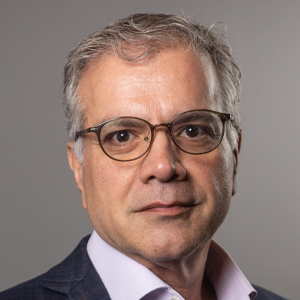
Statement of interest: The ASBMB has been my professional and scientific home for over two decades. I attended my first meeting in 1997 as a senior graduate student, and the experience was transformative. That meeting sparked a lasting connection, and I’ve continued to contribute to the society in a range of capacities ever since. I am honored to be nominated for president and would be eager to serve our vibrant community.
For over a century, ASBMB has championed discovery, collaboration and mentorship across the molecular life sciences. Through its journals, meetings and member-driven initiatives, the society has continually evolved to support researchers and amplify their impact. If elected, I will work closely with ASBMB staff, Council and committees to make strategic decisions that drive innovation, support member needs and sustain long-term growth — while embracing the pioneering spirit that defines our membership.
Since 2013, I’ve helped lead the ASBMB Grant Writing Workshop, now in its 11th year. I cochaired the 2022 annual meeting and currently chair the Meetings Committee. During the pivotal transition away from the Experimental Biology and Medicine conference, I worked with staff to innovate and strengthen the annual meeting — efforts that contributed to a 25% increase in attendance this year in Chicago.
ASBMB is at a turning point. We face real challenges but should embrace them as opportunities to grow and lead. If elected, I will work to ensure ASBMB not only remains a resilient, accessible and forward-looking hub — but also leads the way in shaping the future of molecular life sciences.
Read the full candidate profile.
Edward Eisenstein
Associate professor of bioengineering; Fellow, Institute for Bioscience and Biotechnology Research
University of Maryland
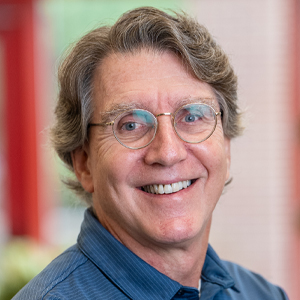
Statement of interest: I joined ASBMB as a graduate student because my teachers emphasized that belonging to this scientific society would provide a strong community to sustain me throughout my career. They were right. As a member, I have had the privilege of serving on committees and in leadership roles, am currently on Council and am proud to be recently named an ASBMB fellow. My ASBMB mentors made a difference by encouraging me to pursue scientific knowledge, from the mechanisms of allosteric enzymes to regulatory networks in poplar trees, and inspired me to innovate as a teacher, advisor and administrator.
I took an active role in our collaboration on the current ASBMB strategic plan, and I am motivated to work with members from all levels, disciplines and career paths to achieve our goals. I will lead and support our outstanding scientists, dedicated educators and talented professional staff for ASBMB to grow and move forward together, as an effective, efficient and sustainable organization.
The scientific community is currently facing unprecedented challenges. Because the world relies on ASBMB for evidence-based solutions to grand challenges in the life sciences, not only will I continue to help coordinate with broad coalitions to amplify our advocacy messages, but I will work with members and staff to creatively educate and engage with public stakeholders so that everyone understands the indisputable value of research, training and the integrity of scientists. My experience can help ASBMB lead these critical collective efforts, now more than ever, for the future growth and prosperity of science.
Candidates for Secretary
The secretary serves on the Executive Committee of Council. The secretary sees that bylaw-required notices are duly given, serves on the Nominating Committee and is responsible for supervising the preparation of the society and Council minutes. Learn more about this position here.
Voters select one candidate from two nominees.
Suzanne Barbour
Professor of cell biology; Dean of the Graduate School; Vice provost for graduate education
Duke University
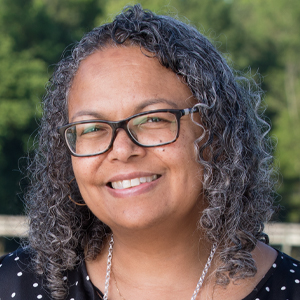
Statement of interest: I’ve been a member of ASBMB since I was in graduate school, back when the society was called the American Society of Biological Chemists, or ASBC. I still remember the honor of being informed that I’d been invited to join the society. It was a turning point in my professional career. Another turning point came when Ellis Bell invited me to join the Education and Professional Development Committee in 2008. Service on that committee, and later on the Maximizing Access Committee, gave me the opportunity to create turning points for other emerging biochemists. Since then, I’ve had the honor of serving the society in a number of ways, most recently as a member of Council. Through those experiences, I’ve come to appreciate the impact and value that ASBMB brings to all of its members through advocacy, professional development and the rich learning and networking opportunities afforded by our annual and small meetings.
Now, I have the honor of being nominated to serve as secretary of our society. If elected, I promise to serve the society by promoting thoughtful conversations, listening humbly and encouraging diverse ideas, always keeping in mind the mission, vision and values that govern ASBMB. I am anxious to continue serving ASBMB as we pursue our mission to “… (build) and (empower) a broad community of molecular life scientists to advance discovery,” by “… catalyzing the infinite potential of molecular life science.” I hope you will give me the opportunity to do so in the role of secretary of ASBMB.
Read the full candidate profile.
Takita Sumter
Professor of chemistry; Dean of the College of Arts and Sciences
Winthrop University

Statement of interest: I began my academic career as an independent faculty member at Winthrop University, where I established a research program investigating the molecular mechanisms of high mobility group A proteins in oncogenic transformation. This work was central to supporting the next generation of molecular life scientists and depended heavily on undergraduates. Through teaching, mentorship and service, I have remained committed to advancing the mission of ASBMB, particularly in promoting inclusivity and excellence in the molecular life sciences.
My service to ASBMB has included two terms on the Council, during which I worked collaboratively with society leadership through key transitions, including the establishment of an independent national meeting and the onboarding of two executive directors. I also served as chair of the ASBMB Minority Affairs Committee, where I led efforts to investigate barriers in grant resubmission processes for scientists from historically marginalized backgrounds. This work culminated in the Interactive Mentoring Activities for Grantsmanship Enhancement, or IMAGE, grant writing workshop, developed with Marion Sewer, Sonia Flores and Squire Booker.
In addition, I contributed to elevating the visibility of students and faculty at primarily undergraduate institutions by directing the Southeast Region of the Undergraduate Affiliate Network, serving as a judge for the annual Undergraduate Poster Competition and working on several small BMB education meetings.
As the perceived roles of basic science, innovation and equity become increasingly dynamic, ASBMB must remain a leader in these conversations. I am deeply committed to this work and would be honored to serve as secretary to help guide the society through this critical juncture.
Candidates for Council
Council is the ASBMB governing body, which has the authority to and is responsible for governing ASBMB. The Council establishes policy and monitors implementation by ASBMB’s staff under the direction of the CEO. Councilors seek to achieve the mission of the society and ensure that ASBMB is well maintained, financially secure and operating in the best interests of the membership and profession. Learn more about this position here.
Voters select two candidates from four nominees.
Sonia Flores
Professor of medicine; Vice chair of diversity and justice
University of Colorado Anschutz Medical Campus

Statement of interest: As a graduate student, attending the annual ASBMB meetings was the highlight of my summers. It was during these meetings that I interacted with luminaries of the scientific world, including Nobel laureates, something I never imagined I would experience. I was awarded a Procter & Gamble graduate fellowship after my application was reviewed by ASBMB leadership; this solidified my commitment and loyalty to the society. It’s also impressive how all society members are nurturing the next generation of scientists, providing travel awards, opportunities that indeed helped me with my future career goals.
I am grateful that ASBMB has embraced the principles of equity and universal access so critical for a well-integrated and welcoming society. I joined the Maximizing Access Committee as a member and then as chair for six years. The MAC oversaw the design and submission of grants and successfully competed for National Science Foundation Interactive Mentoring Activities for Grantsmanship Enhancement, or IMAGE, and National Institutes of Health, National Institute of General Medical Sciences Maximizing Opportunities for Scientific and Academic Independent Careers, or MOSAIC, grants that are flagships for the society. I also organized and chaired three MAC-sponsored thematic sessions at the ASBMB annual meeting and served as a member of the ASBMB Public Affairs Advisory and Women in Biochemistry and Molecular Biology Committees. In 2023, I was named an ASBMB fellow in recognition of my service to the society.
As a member of the ASBMB Council, I pledge to ensure that all the society’s goals and aspirations are aligned with its mission and vision. It would be an honor to give back to the society that has given so much to me.
Read the full candidate profile.
Robert Stahelin
Professor of pharmacy
Purdue University

Statement of interest: ASBMB has been a supportive community for my research and education since starting my lab as an assistant professor. I’ve made new collaborators and friends while gaining mentors that I’ve met through society activities and the annual meeting. The society has also been a great place to meet potential trainees and to bring my own lab members, including undergraduates, graduate students and postdocs, to take part in the poster sessions, workshops and scientific sessions. I’ve gained knowledge in outreach, communication, diversity and some of the inner workings of the society through service to ASBMB and the Journal of Biological Chemistry. I’ve been delighted by the undergraduate poster sessions, scientific sessions and workshops. Further, ASBMB has an impressive community of scientists committed to biochemistry and molecular biology science education that I’m proud to be a part of.
I am committed to promoting undergraduate research and training, educational activities, workshops and promoting the importance of research funding. I am also excited by opportunities for new society members, trainees and junior faculty to take part in different ASBMB committees and activities at the annual meeting. I very much look forward to what the society and annual meeting have in store for the next generation of scientists.
Read the full candidate profile.
Nathan Vanderford
Associate professor of toxicology and cancer biology
University of Kentucky College of Medicine

Statement of interest: ASBMB plays a pivotal role in the professional development of BMB scientists. I know this firsthand. As a second-year biochemistry Ph.D. student, I attended the 2005 ASBMB annual meeting in San Diego. There, I heard Nobel laureates Michael Brown and Joseph Goldstein speak about their work. I also presented my own research on a national stage for only the second time. This meeting solidified my interest in biochemistry.
It’s exciting that a goal in ASBMB’s strategic plan focuses on professional development. This has been a key area of my service to the society. I have been a member of ASBMB’s Education and Professional Development Committee since 2017, I was chair of the Graduate and Postdoctoral Education and Professional Development Subcommittee from 2021 to 2023, and I became chair of EPD in 2023. I participated in planning the 2020 and 2021 annual meetings, focusing on organizing professional development content. I have also served as an Undergraduate Poster Competition judge for several years. I believe education and professional development activities — which extend across all areas of the society — are critical to ASBMB’s mission and impact.
Higher education, science and science education and training are under existential threats. Now is the time to double down on protecting and investing in these areas. As a Council member, I will have a critical eye on how ASBMB comprehensively serves its members, how ASBMB supports the scientific enterprise and how ASBMB supports the professional development of BMB scientists, especially in the context of threats and opportunities.
Read the full candidate profile.
Ann West
Professor of chemistry and biochemistry; Associate vice president for research and partnerships
University of Oklahoma
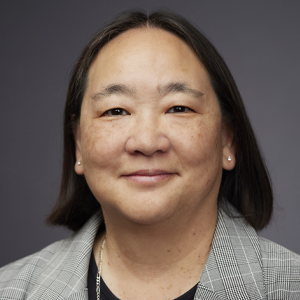
Statement of interest: I am a professor of chemistry and biochemistry and serve as associate vice president for research and partnerships at the University of Oklahoma. My research focuses on the structural and functional characterization of bacterial and fungal signal transduction pathways. I also direct a National Institutes of Health–funded Center of Biomedical Research Excellence in Structural Biology, which has supported early-career faculty and provided access to state-of-the-art core facilities.
ASBMB has played a pivotal role in my career — from my first publication as a graduate student in the Journal of Biological Chemistry to attending my first large-format conference as a faculty member at an ASBMB annual meeting. Over the past five years, I’ve had the privilege of serving ASBMB on the Public Affairs Advisory Committee, including as its chair. In this role, I have worked to advocate for sustainable funding for basic research, support the next generation of scientists and help navigate the complex challenges our community faces.
If elected to Council, I will bring my administrative and leadership experience to bear in advancing ASBMB’s ambitious strategic plan goals. I am committed to ensuring ASBMB remains a society we are proud to be part of — one that continues to foster scientific excellence, equity and community. It would be an honor to serve, and I would do so with integrity and a clear sense of purpose to move our science and our society forward.
Candidates for Nominating Committee
The Nominating Committee identifies and puts forward candidates qualified for each elected ASBMB volunteer position for election. Per bylaws, members follow a standardized and equitable system to vet all candidates, ensuring fairness, transparency, and consistency in the evaluation process. Learn more about this position here.
Voters select one candidate from two nominees.
Siavash Kurdistani
Professor and chair of biological chemistry
UCLA
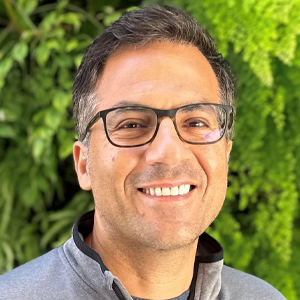
Statement of interest: ASBMB’s voice in shaping national discourse on science policy and funding is more critical than ever, especially in a climate where scientific research is increasingly politicized and funding uncertain.
My lab studies chromatin biology, developing a framework that views chromatin as a metabolic organelle. We’re guided by evolutionary events that led to the emergence of ancestral histones and their presence in early eukaryotes. A discovery from our lab is that histone H3 functions as a copper reductase enzyme, producing bioavailable copper for cellular and mitochondrial metabolism. Our work suggests histones were essential for eukaryogenesis and may contribute to human disease in unexpected ways.
I have served as chair of my department for the past 10 years and have worked to cultivate an environment where faculty and trainees have wide latitude to pursue curiosity-driven research, and where such work is both valued and rewarded. I’ve learned that effective leadership in science requires not just vision, but a commitment to solving people’s problems.
If elected, I will work to identify and recruit leaders who reflect the full breadth of our scientific community — across disciplines, backgrounds and career stages. We need leaders who advocate for the importance of fundamental research, navigate today’s challenges and inspire the next generation. Doing science is a privilege, and it should be fun. I would be honored to help ensure ASBMB remains vibrant and forward-looking, while staying engaged with emerging challenges, including advocating for robust research funding and protecting the integrity of open scientific inquiry.
Read the full candidate profile.
Graham Moran
Professor and research chair of chemistry and biochemistry
Loyola University Chicago
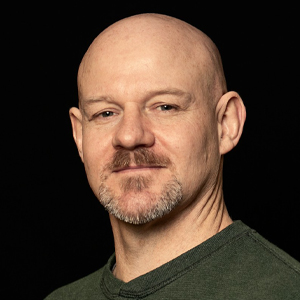
Statement of interest: I have been a member of ASBMB for more than twenty years. I seek membership of the Nominating Committee to maintain the strengths and influence the future direction of the society. I have been an independent researcher for 25 years, a department chair at the University of Wisconsin Milwaukee, department of chemistry and biochemistry, and now occupy the Carl Moore Research Chair position at Loyola University Chicago, department of chemistry and biochemistry.
My laboratory studies enzyme mechanisms using primarily transient state methods. While we have studied many systems with relevance to medicine or agriculture, our activities center around fundamental questions and attempt to understand enzymatic catalysis through the comprehensive understanding of the chemical mechanism sequence.
I have a strong belief in participating and directing energy toward one’s convictions with purpose, openness and optimism. I feel that I have been fortunate to pursue this career on my own terms and have enjoyed ostensibly every minute of it. As such, giving back has always seemed warranted, and I take opportunities to contribute as they arise. I don’t care much about pedigree, the latest hoopla or pretense. I assert that capable and curious scientists can be found within all echelons of the academy or industry. So, as a Nominating Committee member, I would be interested in ASBMB leadership continuing to represent the breadth of the society's members.
Candidates for Publications Committee
The Publications Committee oversees publishing activity to ensure that the journals are premiere venues for publishing and engaging with BMB science while also ensuring the publishing portfolio serves as a significant contributor of revenue to support ASBMB’s mission. It also advises the editors of ASBMB journals on editorial matters and Council on policy, ethical and legal issues related to publishing. Learn more about this position here.
Voters select one candidate from two nominees.
Christine Dunham
Professor of chemistry
Emory University

Statement of interest: It would be a great honor to serve another term on ASBMB’s Publications Committee and contribute to our society’s pioneering approaches to transparency and rigor in the publication of great science.
I am a faculty member in the department of chemistry at Emory University. The research in my lab focuses on the molecular mechanisms that govern the regulation of protein synthesis, and we use biochemical and structural biology approaches and, sometimes accidentally, wander into microbiology.
As we all recognize, there are many venues for investigators to publish their work, but we must continue to emphasize why ASBMB’s journals should be a first choice, especially for junior scientists. I speak from my own experience as a junior faculty member. The Journal of Biological Chemistry was an important journal for me when starting my own lab and publishing for the first time; receiving timely, fair and constructive reviews from expert scientists in my field was important in the scientific process. Now as a professor, I recognize and appreciate how important these early papers my lab published in JBC were to my career. I hope to help continue with this endeavor as a member of the Publications Committee.
Read the full candidate profile.
Reuben Peters
Professor of biochemistry and biophysics and molecular biology
Iowa State University
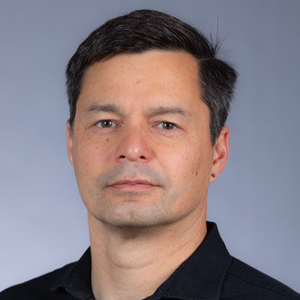
Statement of interest: Scientific publishing is undergoing a period of upheaval, with increasing competition and competing financial interests between publishers and research agencies. I strongly believe that society journals play a critical role as a bulwark against profit as the sole driver for the publishing industry. The ASBMB journals provide strong, well-established venues for publication of quality studies that may not fit with the zeitgeist of their time but nonetheless are important contributions. This is true across an especially broad range of research, from atomic-level studies of macromolecular function to interorganismal ecological interactions, which I particularly recognize from my service over 10 years with the editorial board of the Journal of Biological Chemistry, emphasizing the importance of our journals in the industry. My experience as an editor for other journals and, especially on the publications committee for the American Society of Plant Biologists, emphasizes my commitment to this critical aspect of the scientific endeavor. Thus, I am pleased to have been nominated to serve on the ASBMB publications committee and would welcome the chance to contribute to this important facet of our society.
Enjoy reading ASBMB Today?
Become a member to receive the print edition four times a year and the digital edition monthly.
Learn moreGet the latest from ASBMB Today
Enter your email address, and we’ll send you a weekly email with recent articles, interviews and more.
Latest in People
People highlights or most popular articles
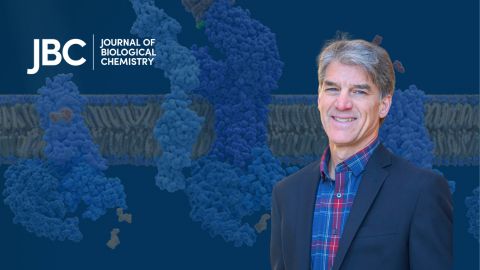
Meet Paul Shapiro
Learn how the JBC associate editor went from milking cows on a dairy farm to analyzing kinases in the lab.

In memoriam: Jeffrey Cameron
He was an associate professor of biochemistry at the University of Colorado Boulder and co-founder of the biotech company Prometheus Materials.

Finding a symphony among complex molecules
MOSAIC scholar Stanna Dorn uses total synthesis to recreate rare bacterial natural products with potential therapeutic applications.

Sketching, scribbling and scicomm
Graduate student Ari Paiz describes how her love of science and art blend to make her an effective science communicator.

Embrace your neurodivergence and flourish in college
This guide offers practical advice on setting yourself up for success — learn how to leverage campus resources, work with professors and embrace your strengths.

Survival tools for a neurodivergent brain in academia
Working in academia is hard, and being neurodivergent makes it harder. Here are a few tools that may help, from a Ph.D. student with ADHD.

